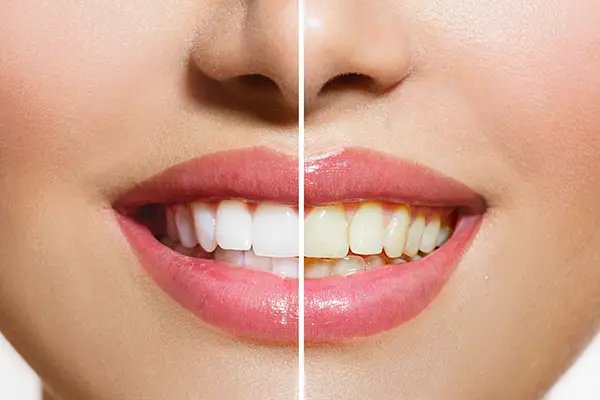Why Teeth Are Often Sensitive Following Whitening Procedures
Posted on 3/15/2025 by Singing River Dentistry - Helton Drive |
 Teeth whitening is a popular cosmetic dental procedure that can brighten your smile and boost your confidence. However, many people experience tooth sensitivity after the procedure. This sensitivity can range from mild discomfort to sharp pain and can make it difficult to enjoy your favorite foods and drinks. Teeth whitening is a popular cosmetic dental procedure that can brighten your smile and boost your confidence. However, many people experience tooth sensitivity after the procedure. This sensitivity can range from mild discomfort to sharp pain and can make it difficult to enjoy your favorite foods and drinks.
In this article, we will explore the reasons why teeth become sensitive after whitening and offer tips on how to manage this sensitivity.
What Causes Teeth Sensitivity After Whitening?
Teeth whitening works by using bleaching agents to break down the stains on the surface of your teeth. These bleaching agents can also irritate the dentin, the layer of tissue beneath the enamel. The dentin contains tiny tubules that connect to the nerve of the tooth. When these tubules are exposed, they can allow hot, cold, or acidic substances to reach the nerve, causing sensitivity.
Several factors can increase your risk of experiencing sensitivity after teeth whitening:
| • |
The concentration of the bleaching agent: Higher concentrations of bleaching agents can cause more irritation. |
| • |
The length of the treatment: Longer treatments can increase the risk of sensitivity. |
| • |
Your individual sensitivity: Some people are more prone to sensitivity than others. |
| • |
Pre-existing dental conditions: If you have cavities, exposed roots, or gum recession, you are more likely to experience sensitivity. |
How to Manage Teeth Sensitivity After Whitening
If you experience sensitivity after teeth whitening, there are several things you can do to manage it:
| • |
Use a desensitizing toothpaste: These toothpastes contain ingredients that help block the tubules in the dentin, reducing sensitivity. |
| • |
Apply a fluoride gel: Fluoride can help strengthen the enamel and reduce sensitivity. |
| • |
Avoid hot and cold foods and drinks: These can exacerbate sensitivity. |
| • |
Take over-the-counter pain relievers: Ibuprofen or acetaminophen can help relieve pain. |
| • |
Use a straw: This can help to minimize contact between your teeth and sensitive foods and drinks. |
| • |
Talk to your dentist: If your sensitivity is severe or does not improve with home care, your dentist may recommend additional treatments, such as fluoride varnish or in-office desensitizing procedures. |
Preventing Teeth Sensitivity
The best way to prevent teeth sensitivity after whitening is to talk to your dentist beforehand. They can assess your individual risk factors and recommend the best whitening method for you. They can also provide you with tips on how to minimize sensitivity before, during, and after the procedure.
Oral Care and Restoration Dentistry
It is important to maintain good oral hygiene after teeth whitening to prevent sensitivity and keep your smile healthy. This includes brushing twice a day, flossing daily, and using an antiseptic mouthwash.
If you have any pre-existing dental conditions, such as cavities or gum disease, it is important to address them before teeth whitening. This will help to minimize the risk of sensitivity and ensure that your teeth are healthy enough to withstand the whitening process.
Restoration dentistry procedures, such as fillings, crowns, and bridges, can also help to protect your teeth from sensitivity. If you have any concerns about sensitivity after teeth whitening, talk to your dentist about your options.
Conclusion
Teeth whitening is a safe and effective way to brighten your smile. However, it is important to be aware of the potential for sensitivity and to take steps to manage it. By talking to your dentist and following the tips above, you can minimize your risk of experiencing sensitivity and enjoy the benefits of a whiter, brighter smile.
|
|
